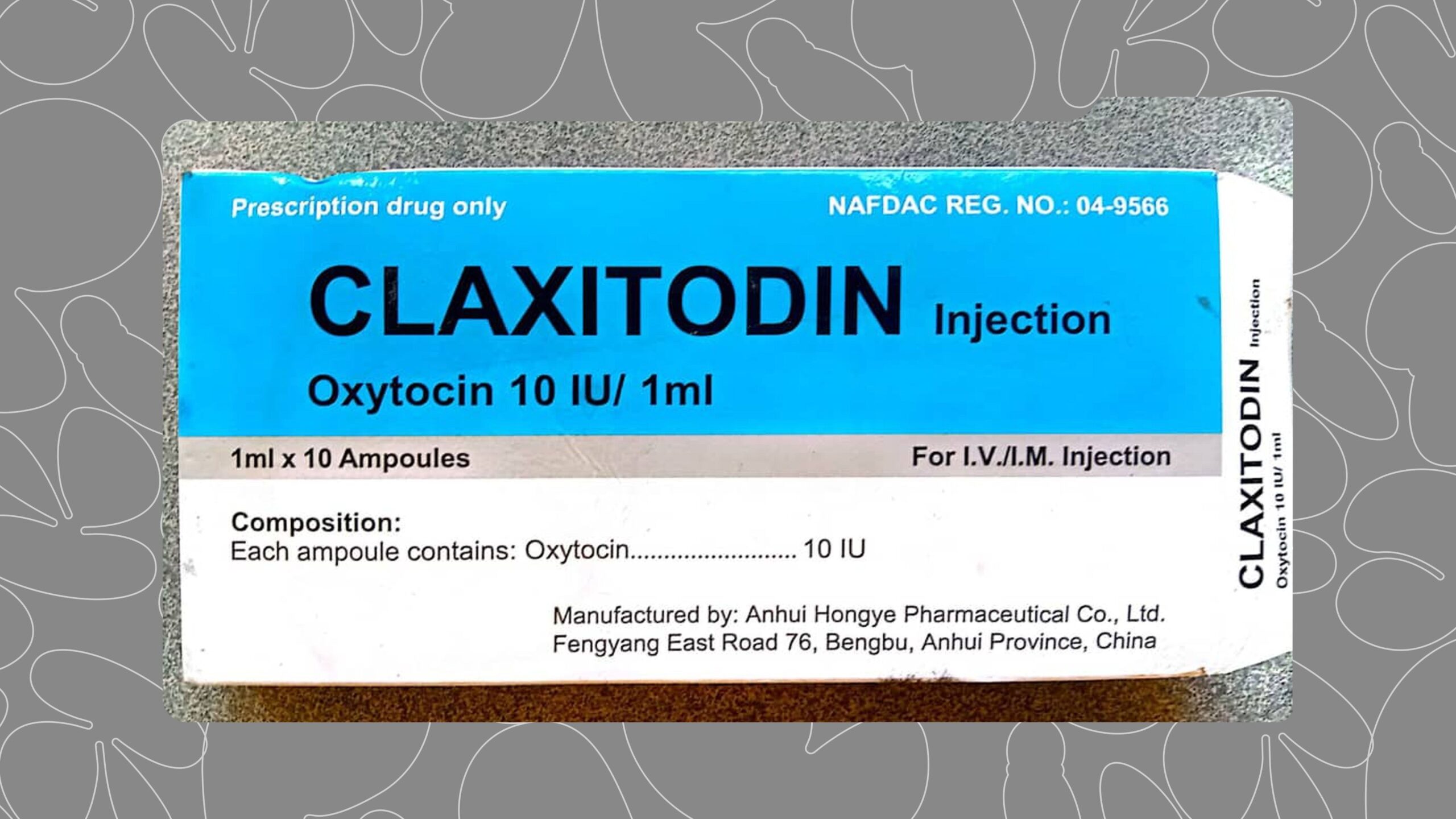On September 1st, the National Agency for Food and Drug Administration and Control (NAFDAC) issued a strong warning to Nigerians about the circulation of fake and unregistered oxytocin injections in the country. This alert, shared first on its website and later reiterated on Twitter, is both an agency notice and a matter of public health.
The flagged product, Gold Vision Oxytocin Injection 10IU, carries a falsified NAFDAC registration number (04-9566) and was reportedly being distributed by Gold Vision Medicals in Enugu.
Investigations linked it to a Chinese company, Anhui Hongye Pharmaceutical Co. Ltd. But it doesn’t stop there: NAFDAC also uncovered three more falsified oxytocin products- A-tocin Injection, Extocin Injection, and Claxitodin Injection, all carrying the same fake registration number.
Read Also: How to Avoid Buying Counterfeit Cowbell Products and Safer Alternatives
The High Stakes of Fake Oxytocin
Oxytocin isn’t just another drug you can pick up casually at the chemist. It’s a prescription-only hormone drug doctors use during childbirth to induce or strengthen labour, control postpartum bleeding, and in some cases, support breastfeeding. When used correctly, it can save lives. When tampered with or faked, it can cost them.
That’s why NAFDAC’s discovery is so alarming. These falsified products may contain incorrect doses, no active ingredient, or even harmful contaminants. The risks are severe: failed labour induction, uncontrolled postpartum haemorrhage, delayed recovery after childbirth, and, in worst cases, maternal death.
For a country already battling high maternal mortality rates, fake oxytocin is as much a regulatory issue as it is a national emergency.
How Fake Oxytocin Was Discovered
NAFDAC says its team identified the falsified injections during a risk-based sampling survey. Officers later confirmed that the drugs were not listed in the official registered products database.
The agency has now instructed all zonal directors and state coordinators to launch surveillance and remove any falsified oxytocin injections found in circulation. Importers, distributors, and retailers have been warned to steer clear of these products to avoid endangering lives.
Read Also: 7 Skincare Products Banned by NAFDAC You Must Avoid
What the Public Should Know About Oxytocin
Most Nigerians hear oxytocin and assume it’s just another hospital drug. But here’s why it’s tightly controlled:
-
It triggers contractions during labour by binding to receptors in the uterus.
-
It stops excessive bleeding after childbirth, a leading cause of maternal deaths.
-
It supports milk production in breastfeeding mothers when medically required.
Because of how powerful it is, oxytocin is only safe under medical supervision. Buying it over the counter, or worse, from unverified sellers, opens the door to misuse and dangerous outcomes.
The Real Dangers of Fake Oxytocin
NAFDAC’s risk statement lays it out clearly:
-
Poor-quality oxytocin may fail to trigger proper contractions, leaving mothers in prolonged or failed labour.
-
Counterfeit injections may not stop bleeding, forcing emergency procedures like blood transfusions or surgery.
-
Contaminated formulations could introduce infections or toxic effects.
In short, when the drug doesn’t do its job, both mother and child face life-threatening risks.
What Nigerians Should Do
Here’s how you can stay safe:
-
Don’t buy oxytocin yourself: This drug is not for self-medication or over-the-counter sales.
-
Check your sources: Only licensed hospitals and doctors can prescribe or administer oxytocin.
-
Report suspicious sales: If you come across anyone hawking oxytocin or selling it outside proper channels, report to NAFDAC.
-
Toll-free hotline: 0800-162-3322
-
Email: sf.alert@nafdac.gov.ng
-
Consumers, healthcare workers, and distributors alike are encouraged to be vigilant. Every falsified vial removed from circulation is one less potential tragedy.
Oxytocin is a life-saving medicine when handled by professionals, but in the wrong hands, it’s a threat. NAFDAC’s latest crackdown is both a bureaucratic move and a reminder that fake drugs remain a danger in Nigeria’s healthcare system.
If you’re expecting a child, have a loved one in labour, or simply care about maternal health, the takeaway is simple: trust only licensed hospitals, doctors, and pharmacies, and if you see something suspicious, speak up. It could save a life.
>
